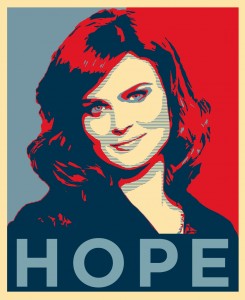Day three of Fullbridge focused much less on group activities and required more attention to individual tasks. The workload was quite dense, and none of us wasted time chatting. On-task and quiet, we immersed ourselves in a world of tutorials, videos, PDF files, and Excel. Most of us listened to music while we worked. I frequently stood up to stretch and give my back a break from sitting too long.
Personal finance stood at the forefront of the day’s work, complete with facts and figures full of jargon. We explored a range of financial settings. These included learning the difference between variable, fixed, and discretionary expenses, as well as the value in renting v. buying a house. While I did not find this information immediately applicable for myself, I knew it would help to know the information later down the road— perhaps after I graduated from Scripps. Even now, some students choose to live in a house with others instead of opting for on-campus housing.
Another topic fell under the category of how to choose a bank based on a three-pronged guide: fees, convenience, and interest paid. Although many of us may already own savings or checking accounts, CDs or mutual funds, we can always benefit from securing additional knowledge. After all, the economy literally changes overnight and new policies appear more often than we might think. Personally, I would have appreciated information about traditional banking v. online banking, given the recent shift to the latter.
By the end of the day, my mind had accumulated a wealth (puns!) of information about personal finance– enough to make me rethink my spending and saving habits. I reflected on the way I had spent my paychecks last fall, and resolved to act more thoughtfully this semester. I set a new budget for myself, and have followed through with it this spring. As of now, I’m happy to say my piggy bank’s been nothing but smiles.

On a tangential note…
My personal accomplishment of the day was working out at the gym for the first time since my arrival at Oxy! Given how difficult it is to find any extra time outside of work, I felt extremely accomplished. I imagined what it would be like to find similar pockets of time for fun or recreation in the future, and am thinking about it still.
When one works an 8 A.M.-5 P.M. work week, one either has to work out early in the morning, or late at night. Eat. Get dressed. Drive to the gym. Work out. Shower. Get dressed again. Sit in traffic. Work. Eat again. Sleep? Throw in a family and kids (which I’d like in my future), and no wonder people in the “real world” can seem so stressed out! The eight-hour workdays at Fullbridge have led me to think more concretely about the kind of lifestyle I hope to adopt in the future.
What priorities do you currently stress in your life? How often do you take the time to sit down and re-evaluate these priorities? Does a budget make its way into the picture? I hope your piggy bank finds a reason to smile. 🙂



